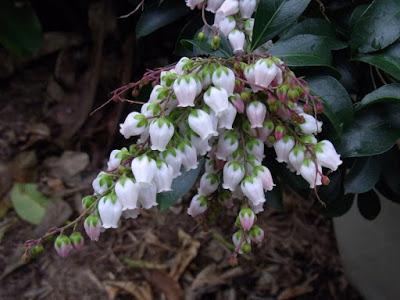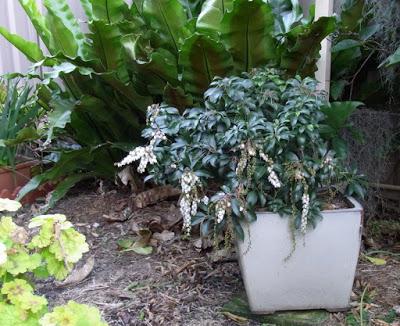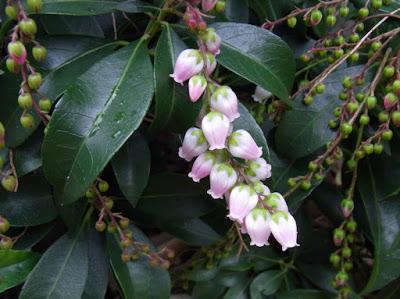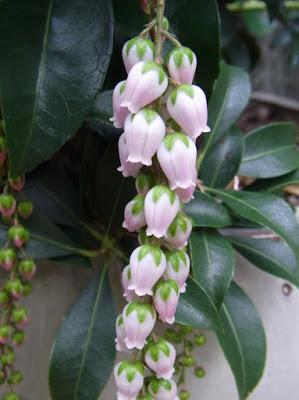If there's one thing I have learned in a few decades of gardening, it's this: put a plant in a spot that it prefers and half your worries are over.
Now, some plants are so versatile and tough that they make a mockery of this rule and proceed to grow beautifully in a dozen different spots.
But there are many other plants for which the real estate agents' mantra of "position, position, position" remains the golden rule to gardening happiness, and pictured below is one such happy camper: Pieris japonica.

In the three previous years, I had the pot in other spots in the garden, and none of them truly suited the Pieris. This year's spot is now its official happy home, and here it will remain for as long as it lives.

First of all, there's lots of gentle morning sunshine. Second, it gets midday filtered light (from the canopy of the lime tree overhead) and third, there's no afternoon sun at all (blocked by the western fence, and the big bird's nest ferns nearby).
The rest is up to me, and it isn't much work. Watering is the main job, but adding some slow-release fertiliser is essential, but I also find that if I am watering nearby vegies and I have some leftover liquid food in the bottom of the watering can, the Pieris gets a little extra feed occasionally.


It has been worth it, not just because these flowers are such lovely little baubles, but also because this is one of "Pammy's plants". She bought it as a baby at a local florist's shop and brought it home, handed it over to me, fixed me with an "it's your responsibility" gaze, and ever since then I have been trying my best to look after her beautiful little Pieris japonica.
This has mostly been a story about finding the best position for a tender, slightly fussy plant by trial and error. But you can't blame the poor Pieris for that. It's not an Australian native, and Sydney isn't really its ideal climate, either.
It's native to eastern China, Taiwan and Japan, and is found there in cool climate forests, where it gets the filtered light and moisture that it loves. My north-east facing Sydney garden is too hot and open for it, but we've found a way to keep it alive and a spot that it seems to like.
If you have a more shaded garden, and especially if you are also in a cooler climate zone, this is a lovely plant to grow. There are lots of named cultivars with flowers in other colours, too. And out of a pot and planted in the ground, it can grow 1-2 metres. I prefer to keep it in a pot, simply because a pot allows me to move the plant around the garden until I find a spot it likes.
